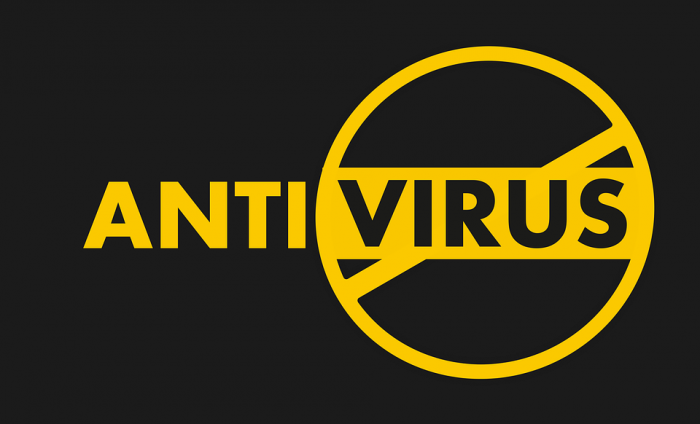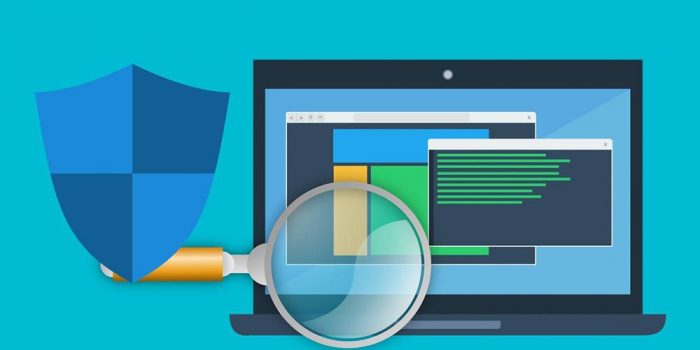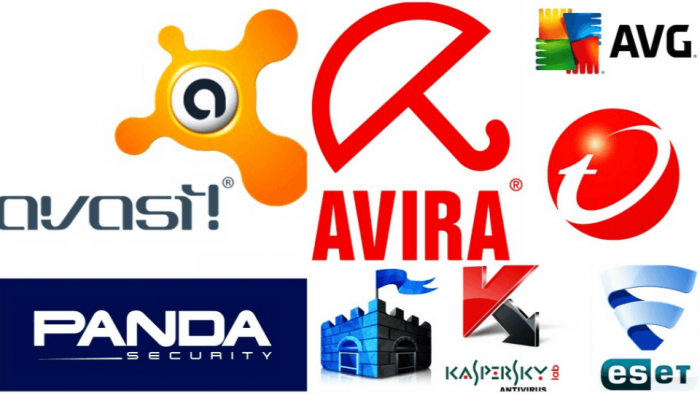How to choose a good antivirus. Looking for the best antivirus or security solution for your Windows computer or device? There are so many options on the market that you may not know which one to choose.
In this guide, we share the criteria you should use to select the best security product for you:
How to choose a good antivirus step by step

Look for all-inclusive protection
In the nineties, having a good security product for your computer meant that having a good antivirus was enough. Today, a good security product is no longer just about virus protection. It is also about firewall protection, protection against cybercrime when browsing the internet, protection against ransomware, VPN protection against third-party monitoring and censorship, etc.
A good security product should include multiple layers of security that protect you from modern virtual threats. A good antivirus is good against traditional types of malware, but that does not mean that your computer cannot be infected with ransomware, which can be even more harmful than a conventional virus.
This is why we believe that when looking for your next security solution, you need to make sure that offers comprehensive protection. This means protection against the following types of threats:
Types of Threats
Virus(How to choose a good antivirus step by step)
Programs with malicious intentions characterized by the fact that can multiply and thus infect other computers or devices. Viruses are generally linked to an executable file which, when you run it inadvertently, also acts as a virus trigger.
Trojans (Trojan horses)
Conclusion malicious software which can go through common software And so they can take you to download and run them on your computer. When you do this, Trojans often pave the way for other forms of malware on your computer.
Worms
Conclusion malicious programs that take advantage of security holes and vulnerabilities of your operating system or other software (such as your web browser, for example) and the used to infect your computer.
Unlike common viruses, worms can multiply and spread themselves, without the need to run an infected file.
spyware
Software programs designed to spy on and collect information about you. Spyware tries to hide from you, the operating system, and your security solution and, after collecting information about you, tries to send it to servers controlled by hackers.
Rootkits
A specific type of malware designed to allow hackers to access and control a device remotely, without being detected by the victims or by the security software installed on the infected devices.
When a hacker gains access to a device infected by a rootkit, you can use it to access, copy and run files remotely, change operating system settings, install additional software (usually other types of malware), etc.
By definition, rootkits are a type of stealth malware, making them more difficult to detect and remove from an infected machine.
Ransomware
We have already talked about this threat in other articles. Are malicious programs that, once infected, control and encrypt your files, such as photos, work documents and videos. When this happens, ransomware programs try to get you to pay considerable amounts of money to their creators, so that you can get your files back.
Adware
Software programs that display advertisements on your screen, in your web browsers or anywhere else on your computer. It may not be malware by definition, but Hadware almost always degrades your computer's performance and user experience, and it can also help infect your computer with malware.
Network attacks
When hackers attempt to control your devices remotely, they can do so using a 'disruption' approach. That's when you need a firewall to stop network attacks. A good firewall should be able to dodge external attacks, but also report suspicious traffic that starts from your computer to the outside world.
Web threats
Your web browser should be the first in the line of defense against malware. That is why a good security solution should include a moWeb protection module that can prevent you from visiting sites with malicious content. It's better to deal with malware in your browser than to have to deal with it when it hits your computer.
2. Choose reliable protection (How to choose a good antivirus step by step)
One of the most important criteria to know how to choose a good antivirus is its reliability. A reliable security product must be able to:
Protect without causing conflicts with other programs installed on your computer. For example, when you install it on your computer, a good security suite should check to see if similar security programs have already been found on your system. If that's the case, the security suite should first ask you to remove the conflicting software before installing.
Protect your processes from unwanted terminations. The powerful malware is designed to take advantage of the weaknesses of an antivirus. Some malware may try to kill the antivirus solution running on your system and take control of the system. A reliable security solution should always protect your processes from unwanted terminations.
Provide up-to-date protection. An antivirus solution that uses old and outdated malware definitions is a weak product. Threats continually evolve; they never stop, so antivirus software must too. A good antivirus is a product that is updated regularly, several times a day.
Automate security checks. We believe that a reliable security solution should provide a means to automate antimalware scans. By this, we mean that a security suite should allow you to schedule virus scans.
3. Beware of performance impact
Security products are, by nature, programs that require a large amount of computing resources to do their job. They use more computing power than your average audio player, for example.
However, all security vendors work to minimize the impact of their products on your computer's performance. If your computer is not the most powerful on the market, you must consider the performance aspect. Typically, a good security product should:
· Have a small impact on your computer startup times. Your Windows should start almost as fast as it did before you installed your security product.
· Have a small impact on the performance of your computer. An effective security solution is not good if it interrupts your computer. You must know how to use your computer resources in a way that does not adversely affect your computing experience in terms of performance and responsiveness.
· Quickly scan your computer for malware. Good antiviruses tend to be faster than others when it comes to scanning your computer for malware threats.
4. Prefer usability (How to choose a good antivirus step by step)
A good security product should be easy to use for both experienced users and occasional users with little or no security knowledge. That means you need:
- Be easy to navigate. It should provide an intuitive way to navigate the various windows, tabs, menus, and settings.
- Easy to use on devices with touch screens. The age of the old monitor is dead. Currently, the number of touch screen PCs is increasing rapidly. Therefore, more and more people are using touch to control how software works. A good security product should have large buttons, tiles, switches of all kinds, check marks, etc. In other words, you should have control elements that are easy to touch with your fingers, not just the mouse cursor.
- Be easy to understand. No matter how easy it is to navigate through a user interface, it's no good if you don't understand what each item and setting means. The configuration options offered should be easy to understand for all users.
- Provide easy-to-find documentation. Like any good product, good security products should provide an easy way to access your documentation. If help documentation is available, but you can't find it, what's the point?
- It gives you full control of how this works. Many people look for security products that do not require any specific configuration. However, there are also people who want to define all the details of how a security product works. If this is the case, a good security product should provide full control.
5. Be prepared to ask for support (How to choose a good antivirus)
Nothing in this world is perfect, so being able to ask for help when something doesn't work as it should is important. That is why support options that you receive are a factor to consider before deciding to purchase a security product.
An IT security company that creates excellent security programs generally tends to offer a wide range of support options, and if you have problems with the product, you should be able to:
- Write them an email in which you describe your problems with the antivirus product.
- Have a live chat session with one of your support engineers.
- Call support for help
Note: None of the support options should cost you additional money, other than what you already paid for when you bought the product.
6. make good use of grouped tools
Many "complete" security products add additional tools in addition to the main security modules. They can include password wallets, secure encrypted cloud storage space, parental control tools, etc.
These additional tools shouldn't be the first thing on your mind when you start looking for your next great security solution, but they may be the little nudge you need to make the right choice between two similar security products.
If you are a parent and need to choose between two similar security suites, but only one offers a parental control module, you should probably choose the one with parental controls.
When choosing to purchase a security product, you should ensure that the additional tools it contains are:
- Safety oriented . If a security product provides free tools that are not security oriented, we think they are not worth buying. These tools are just a means to an end for marketing.
- Useful. The additional tools you get when purchasing a security product should help you. They shouldn't just be clones of tools already on Windows.
- Do not harm your security or privacy. Some providers choose to include additional tools that are not useful to increase your security or privacy. On the contrary, they are damaging this. If a security solution includes suspicious toolbars, web browsers, browser plug-ins, or any other tool that lowers your security or privacy, you should steer clear of that product.
- It does not imply additional costs. If you need to pay more money than you already paid for the security package, it is not worth it.
7. Consider reputation (How to choose a good antivirus step by step)
This may seem a bit conservative, as if we are a team of outdated editors wanting to favor the big names in the IT security market. However, since vidabytes.com we make sure our intentions are honest - reputation matters!
Buy and use a security product from a reputable company It is usually a safer bet than jumping in with a security product from an unknown company.
Good security solutions tend to stay good over time. At the same time, many malware programs disguise themselves as so-called security solutions. When choosing use unknown antivirusEg you may end up installing a virus on your computer, which is what I wanted to protect.
8. Consider the costs
You probably think that all of the criteria we're talking about are nice and fancy, but none of them are as important as the cost of the security product. Most people tend to choose less expensive products And while this is a generally correct approach, it is not always the best.
For security products, this means that you should look for the lowest priced product that meets your needs and offers the protection you need. This product may not be the cheapest on the market. On the other hand, imagine how much it would cost if you bought a security product that didn't protect your files from ransomware.
Some security packages are better than others for antimalware protection; some are easier to use, others offer many advanced settings, etc.
Every security product has its ups and downs, and it's hard to name one as the best for all. One security product may be suitable for you as a beginner, while another may be suitable for you as an advanced technical user.
Security products for the corporate environment require even more attention and criteria to be chosen, if you need help choosing the best antivirus tool for your company, write us in the comment box to give you some of our proposals.


